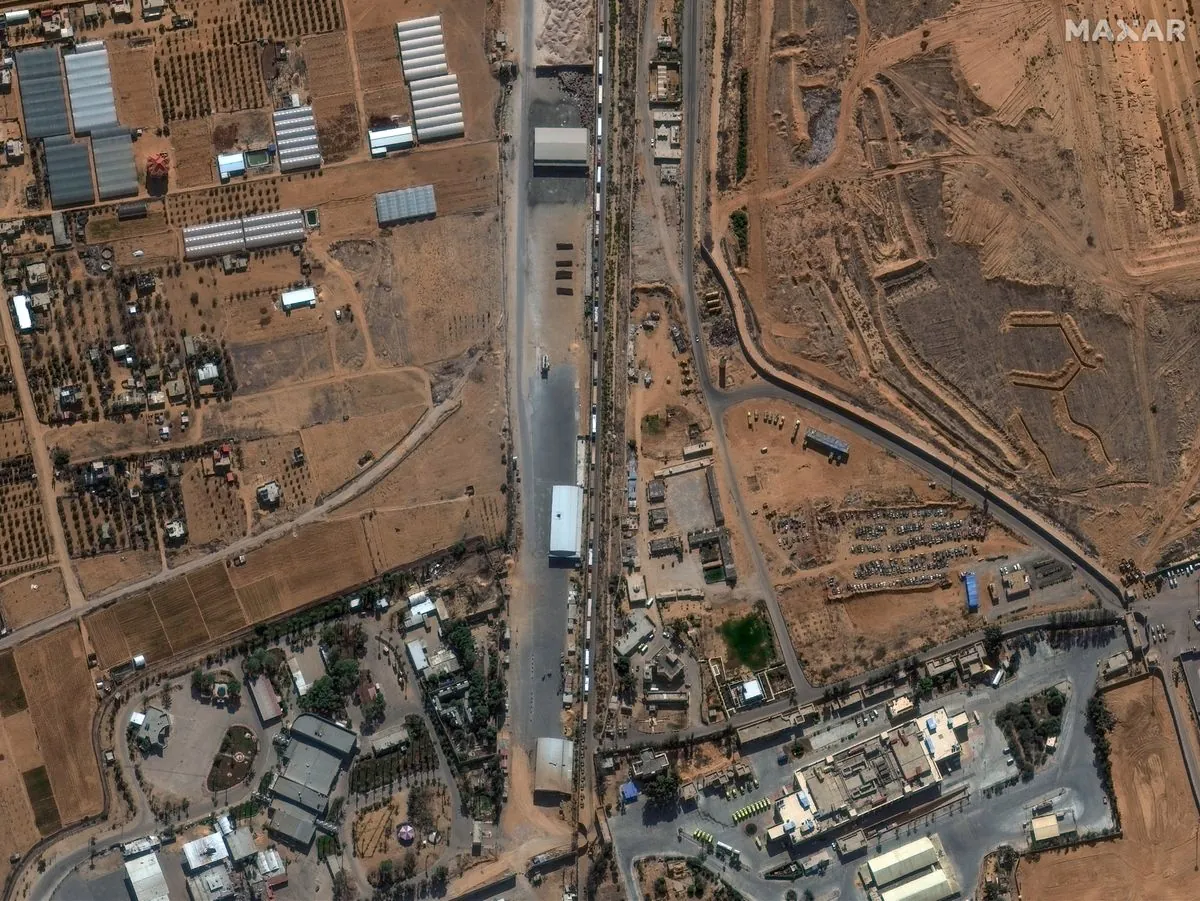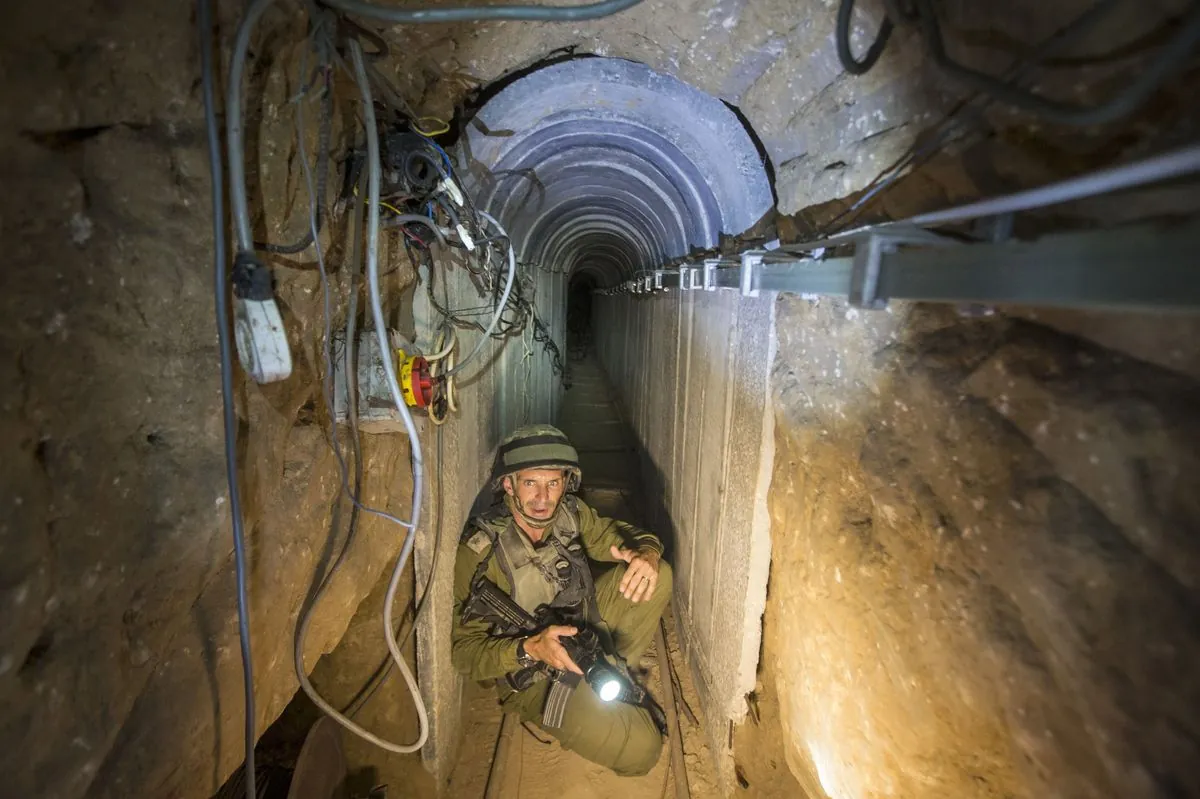Gaza Border Strip Emerges as Key Obstacle in Israel-Hamas Talks
The Philadelphi corridor along the Gaza-Egypt border has become a contentious issue in Israel-Hamas negotiations. Netanyahu insists on controlling it, while critics argue it hinders hostage release efforts.

The Philadelphi corridor, a narrow strip of land along the Gaza-Egypt border, has emerged as a significant hurdle in negotiations aimed at ending the Israel-Hamas conflict and securing the release of hostages. This 14-kilometer-long area, varying in width from 100 to 300 meters, has become a focal point of debate between Israeli officials and international mediators.
Benjamin Netanyahu, Israel's Prime Minister, maintains that control over the corridor is crucial to prevent Hamas from rearming through smuggling tunnels. However, this stance has faced criticism from various quarters, including some within Israel's military and political establishment.
"Favoring border arrangements over the lives of the hostages"
The corridor's significance extends beyond its physical dimensions. It encompasses the Rafah crossing, which has been Gaza's primary connection to the outside world since the territory came under blockade in 2007. The crossing's status is intrinsically linked to any potential resolution of the conflict.
Egypt, a key mediator in the negotiations, strongly opposes any Israeli military presence along its border with Gaza. This stance is rooted in the 1979 Egypt-Israel Peace Treaty, a cornerstone of regional stability that includes specific provisions about border security.

Critics of Netanyahu's position argue that the demand for control over the Philadelphi corridor is unnecessary and potentially detrimental to hostage negotiations. They point out that Egyptian authorities have been actively combating smuggling tunnels since 2013, when President Abdel Fattah el-Sissi came to power and launched a campaign to destroy these underground passages.
The debate over the corridor's importance has intensified in recent months, particularly after the recovery of six hostages' bodies in early September 2024. This tragic event sparked renewed calls for a cease-fire deal, with many Israelis accusing Netanyahu of prioritizing political interests over the lives of captives.
Hamas, which has controlled Gaza since 2007, rejects any Israeli presence in the territory, including the Philadelphi corridor. The group views such presence as a continuation of military occupation, despite Israel's withdrawal of settlers and soldiers from Gaza in 2005.
The United Nations has repeatedly called for an end to the Gaza blockade, which has contributed to the territory having one of the highest population densities in the world. With approximately 2 million people living in an area of 365 square kilometers, the humanitarian situation in Gaza remains precarious.
As negotiations continue, the international community, including the United States, faces the challenge of balancing security concerns with humanitarian needs. The resolution of the Philadelphi corridor issue may prove crucial in achieving a lasting peace agreement and addressing the complex dynamics of the Israel-Hamas conflict.


































